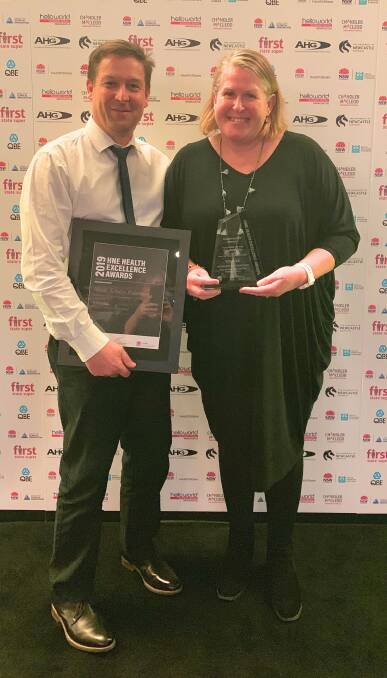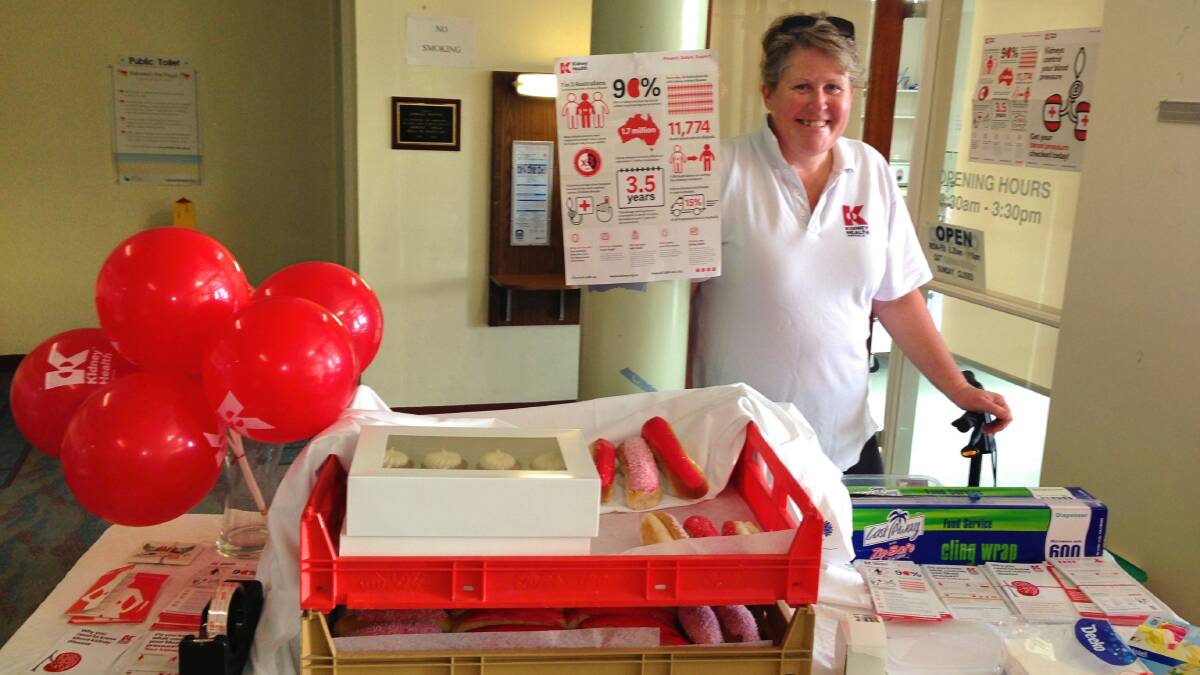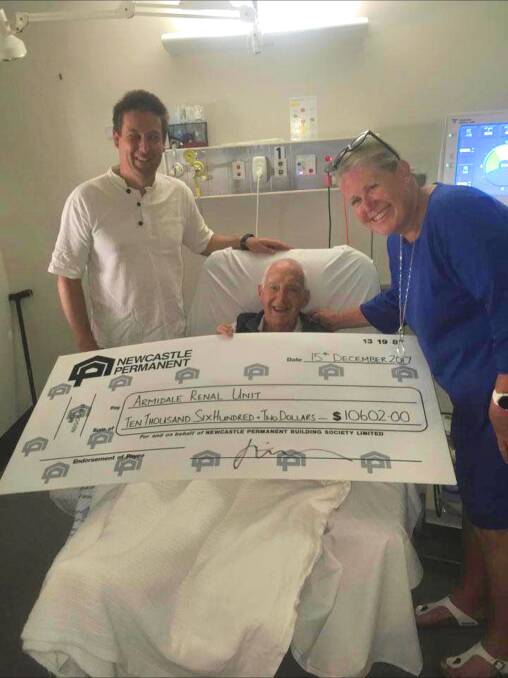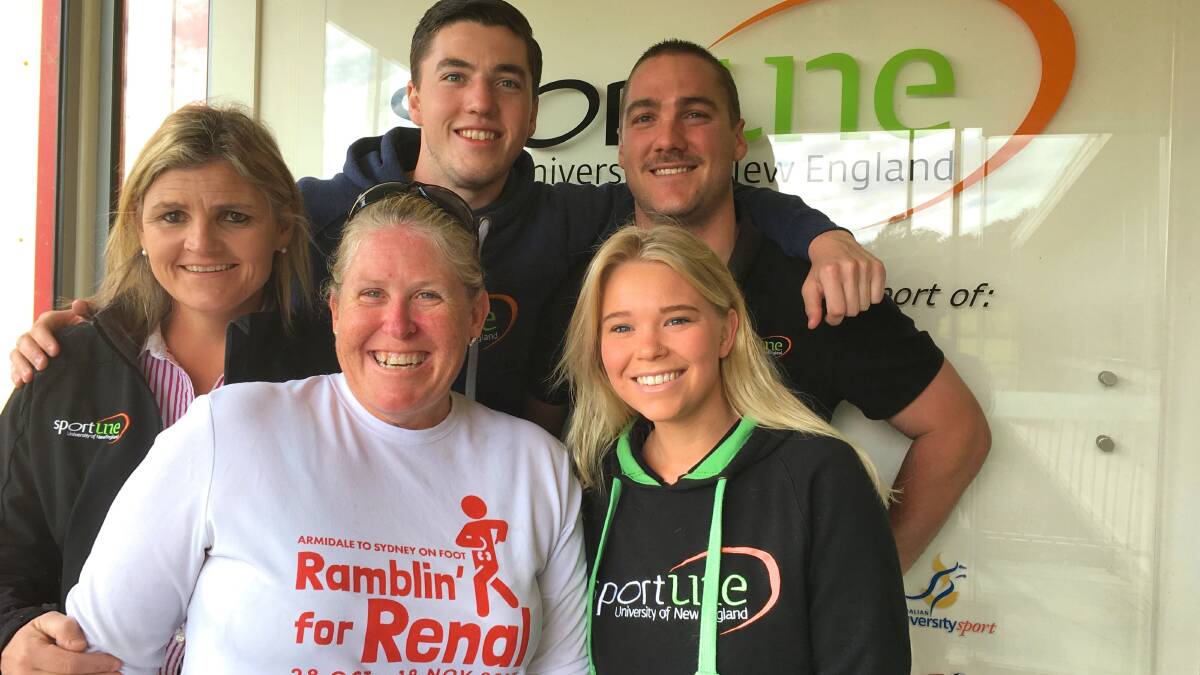
Kidney transplant recipient Nicki Scholes-Robertson was named Hunter New England Health's volunteer of the year in Newcastle earlier this month.
Subscribe now for unlimited access.
$0/
(min cost $0)
or signup to continue reading
Nicki has volunteered for five years now. Her kidneys failed in late 2013; a year later, her younger brother donated one of his own organs.
Since her recovery, Nicki has raised more than $35,000 for renal research; organised dialysis supplies; and started a support group.
Nicki received the award at the HNEH Excellence Awards night at the Newcastle Exhibition Centre on Thursday, July 18.
"I was pretty shocked, actually - but it was lovely!" she said. The award was particularly special, she felt, not just "to acknowledge all the work I do, but more so because of all the HNEH has done for me."
READ ALSO:
Nicki, a physiotherapist, estimates her volunteer activities add up to a day a week.

She might organise supplies for people starting dialysis at home. The Norm Bourke boxes, started 15 months ago, and named after a late Armidale resident, go out to kidney patients throughout the region, as far as Moree and Narrabri.
The support group she started while on dialysis meets on weekends. She might also plan a raffle to provide newspapers for hospital dialysis units; spend time with renal patients; or, towards the end of the year, organise Christmas parties for people on dialysis.
On the three-year anniversary of her transplant, in 2017, Nicki walked more than 500 km on a partly virtual ramble from Armidale to Sydney to raise $20,000 for renal failure research. She split the money between the Armidale Hospital renal unit and Sydney's Royal Prince Alfred Hospital transport unit - and received the mayor's award on Australia Day, 2018.
She works closely with Armidale and Tamworth nurses, and praised Armidale residents for their support and generosity.
"Volunteering is a way you can give back, and hopefully make it easier for the staff, but also for the patients," Nicki said. "You want other people's journeys to be better. Not that mine was bad, but things can always be easier or better. I'm just so appreciative of what everybody did."

Nicki recently started a PhD through the University of Sydney on improving access to dialysis and transplantation for rural Australians, drawing on her own experiences.
The rate of kidney disease, she said, is skyrocketing - but the condition was not spoken about much when she was diagnosed.
"When I found out about renal disease, and my kidneys failed, I didn't really know anyone," she said.
One in three Australians risks developing chronic kidney disease, according to Kidney Health Australia figures - but only one in ten people with the disease know they have it. The main causes are diabetes, high blood pressure, or (as in Nicki's case) auto-immune diseases.

Her brother's donation of a kidney had changed her life. Today is the start of DonateLife Week, dedicated to promoting organ and tissue donation across Australia.
Nicki encouraged readers to sign up to be organ donors.
"A transplant has made a huge difference," she said. "I wouldn't be able to volunteer if I was on dialysis. It would be nearly impossible. Having an organ donor, having a new organ, has really made the difference in my life that I can work; I can study; I can volunteer. Without it, I'd struggle to do those things.
"Going through major surgeries is not much fun, but at the other end of it, having a kidney transplant for me certainly made a massive difference. I'm a very lucky girl!"


